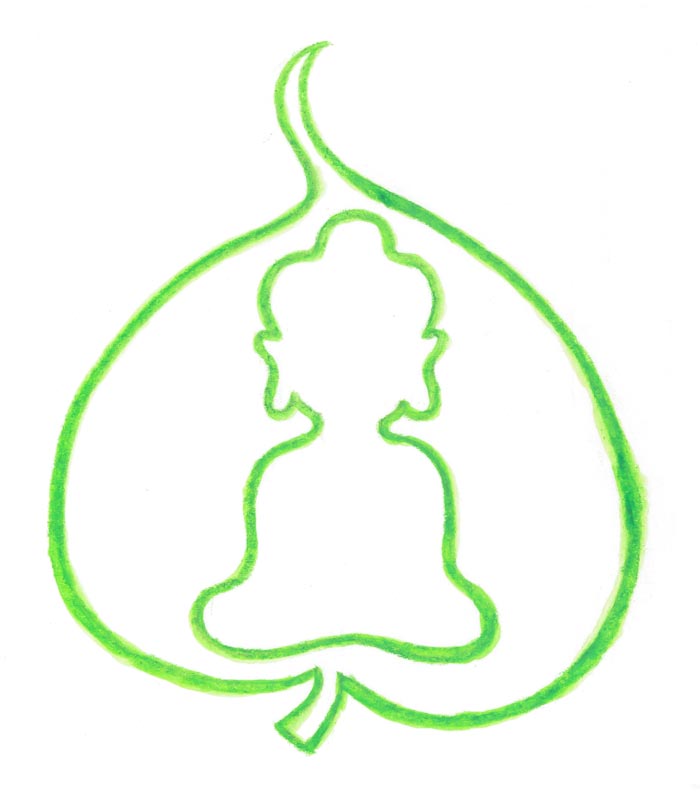


Shirin Nikbakht, Lv. 3 Class, Dharma Jewel Monastery, Atlanta
Daily practice must become non-negotiable in one’s life if one is serious about achieving enlightenment in this lifetime. For me, daily practice is either through sitting meditation or teachings from Grand Master Weichueh, preferably both. I have gained tremendous insights from the weekly meditation classes at the monastery and their structured format; but once a week isn’t enough to sustain any insights gained during class. The classes need to be reinforced daily as a type of medicine to counteract the influence of our chaotic, overstimulating and confusing world. There are external distractions, but my own inner dialogue and feelings on past events also kept me equally distracted from recognizing my intrinsic nature.
I’ve had so many years of wandering thoughts and learned habits that kept me distracted; I’ve also made decisions based on emotions rather than by calm, clear understanding. My goal now is to first awaken this mind so that I can awaken others to their true nature as well. Learning the teachings can lead to a happy and compassionate life, but without having this goal of awakening in mind, one doesn’t have a chance to abide in one’s original nature.
Before I started learning the Dharma, I believed that my mind’s sole job was to think and solve problems. Thinking led to opinions and judgements. Judgements led to emotions that kept my brain in constant revolving motion. Even though I looked relaxed on the outside, I struggled with strong anger, that I later recognized as an even deeper sadness. This is the value of reading the wisdom of Buddhist scripture because I never even considered that I had an “outer-clinging mind” as opposed to an inner, lucid true nature. I just accepted the incessant mental activity as my natural state because I had been living my life with this tsunami of thoughts forever. I practiced calming my body through yoga and exercise, but I was never conscious about calming my thinking mind.
After learning the Dharma, and particularly after participating in my first Chan-7 retreat, I realized that in a way, this original mind, had been unemployed. As funny as that may sound, this original nature has no job at all. The beauty of the bodhi mind is that it solely perceives effortlessly and gracefully always in the present moment. The opinions and judgements of the deluded mind is a job that I would like to retire from!
After a few days in the retreat where my sole exercise was to meditate and turn inward, I realized that my cup was too full of daily life. Too full of social media. Too full of meaningless conversations. Too full of engaging with things that distracted me from quieting my mind to experience what it’s calm and lucid nature is. All these worldly interactions led to mental attachments that kept me clinging and ruminating about them even after the exchanges were complete. And it’s not to say that everything out there was negative or unpleasant. Even interactions and entertainment that were enjoyable still found their way into my quiet meditations. I would laugh at myself and wonder why the sudden thought of a joke that I heard or a song that I loved to dance to would suddenly arise. By the fifth or sixth day of having a break from the usual number of stimulations (social media, YouTube videos, music, etc.) my mind naturally became more settled and effortless. I see now that my meditation practice starts even before I sit down to practice. Everything that I encounter would come to sit with me mentally so I must be diligent to guard my senses from information overload at all times.
Even when I limit my daily intake of information, there are still times that my mind remains unsettled in meditation. When I feel particularly stuck on a planning thought about something I need to do in the future or on an old memory that keeps coming up repeatedly, I use the specific thought as an anchor to focus on at the beginning of my meditation. Obviously, I would prefer not to have the thought, but if it insists on lingering, I try to shine the brightest mental light on it and allow it to be perceived for what it is, an illusory phenomenon that has currently arisen and will naturally fade away. Once I clearly recognize its existence, I gently but directly acknowledge it for a few breaths, then I intentionally contemplate on its empty nature, i.e. how the thought arises and how it will eventually cease. Even if I am worried or sad in the moment, I know that the emotion will also pass if I just allow awareness to illuminate it with no judgement. It simply is what it is. There is the feeling and then the awareness of the feeling and once awareness is recognized, awareness becomes the master instead of the feeling. After freeing myself from the weight of the feeling, I let go of all thoughts and emotions and am able to “abide in nothing” even if it’s only for a few calm quiet moments.
I love contemplating on Grand Master’s teaching to “walk through a field of flowers, and yet not a single petal clings to the body”. That sounds pleasant and peaceful. But I aspire to also walk through a field of fire and not let a single flame burn me. This deluded mind can hurt us even more than any physical pain. Good or bad, flowers or flames, pleasant or unpleasant, at all times we must practice living in awareness to break free from the shackles of clinging to any thoughts that prevent us from realizing our clear original nature.